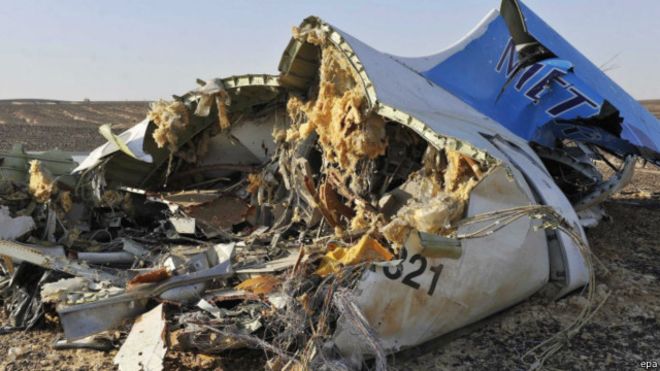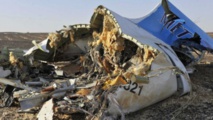"I don't have the exact amount of time they gave us, but it was professional," Cook said.
"There was advance warning, giving us the opportunity if we had had aircraft in the area that we could have made adjustments. That wasn't necessary in this case."
The United States and Russia have been waging separate air campaigns in civil war-torn Syria, and the notification is apparent evidence that a flight-safety agreement between the two powers is working.
In the days after Russia's bombing campaign began, Pentagon and Moscow officials drew up guidelines specifying how pilots should behave if they cross paths.
Russian Defense Minister Sergei Shoigu said that powerful Tu-22 long-range bombers had been used to strike targets around Raqa and Deir Ezzor. He added that cruise missiles had struck Idlib and Aleppo regions.
The bombing came after Moscow pledged vengeance on militants who downed its passenger jet in Egypt, killing all 224 people on board.
US officials confirmed that Russia had hit a large number of targets in Raqa.
"We are aware that over the past several hours Russia conducted a significant number of strikes in Raqa," a US defense official said, speaking on condition of anonymity.
Another US official said Russia had sent one "strike package" of long-range bombers into Syria -- across Iraqi air space -- and had also fired "about 20" cruise missiles from the Caspian Sea, all of which appeared to have landed in Syria.
When Russia fired cruise missiles at Syria last month, the Pentagon said four of them had crashed in Iran. Moscow denied the claim.
- Russia 'counterproductive' -
The United States has been critical of Russia's role in Syria, saying its air strikes are designed to prop up the regime of President Bashar al-Assad and calling on Moscow to hit IS targets instead.
Cook said that Russia's bombing of Raqa, which has come to be seen as the de facto IS capital in Syria, did not immediately alter the US position.
"Their policies of supporting the Assad regime continue in our view to be counterproductive," he said.
"Until they alter that policy, we don't see much of an area for further cooperation."
Russian President Vladimir Putin earlier vowed vengeance as Moscow confirmed a bomb brought down a Russian passenger jet over Egypt last month.
In a meeting with his security chiefs, Putin pledged to ramp up Moscow's bombing campaign in Syria in response to that attack. But he stopped short of blaming any one group.
"We will search for them anywhere they might hide. We will find them in any part of the world and punish them," he said.
---------------------------------------------------------------------------------------------------------------
"There was advance warning, giving us the opportunity if we had had aircraft in the area that we could have made adjustments. That wasn't necessary in this case."
The United States and Russia have been waging separate air campaigns in civil war-torn Syria, and the notification is apparent evidence that a flight-safety agreement between the two powers is working.
In the days after Russia's bombing campaign began, Pentagon and Moscow officials drew up guidelines specifying how pilots should behave if they cross paths.
Russian Defense Minister Sergei Shoigu said that powerful Tu-22 long-range bombers had been used to strike targets around Raqa and Deir Ezzor. He added that cruise missiles had struck Idlib and Aleppo regions.
The bombing came after Moscow pledged vengeance on militants who downed its passenger jet in Egypt, killing all 224 people on board.
US officials confirmed that Russia had hit a large number of targets in Raqa.
"We are aware that over the past several hours Russia conducted a significant number of strikes in Raqa," a US defense official said, speaking on condition of anonymity.
Another US official said Russia had sent one "strike package" of long-range bombers into Syria -- across Iraqi air space -- and had also fired "about 20" cruise missiles from the Caspian Sea, all of which appeared to have landed in Syria.
When Russia fired cruise missiles at Syria last month, the Pentagon said four of them had crashed in Iran. Moscow denied the claim.
- Russia 'counterproductive' -
The United States has been critical of Russia's role in Syria, saying its air strikes are designed to prop up the regime of President Bashar al-Assad and calling on Moscow to hit IS targets instead.
Cook said that Russia's bombing of Raqa, which has come to be seen as the de facto IS capital in Syria, did not immediately alter the US position.
"Their policies of supporting the Assad regime continue in our view to be counterproductive," he said.
"Until they alter that policy, we don't see much of an area for further cooperation."
Russian President Vladimir Putin earlier vowed vengeance as Moscow confirmed a bomb brought down a Russian passenger jet over Egypt last month.
In a meeting with his security chiefs, Putin pledged to ramp up Moscow's bombing campaign in Syria in response to that attack. But he stopped short of blaming any one group.
"We will search for them anywhere they might hide. We will find them in any part of the world and punish them," he said.
---------------------------------------------------------------------------------------------------------------









 Home
Home Politics
Politics











